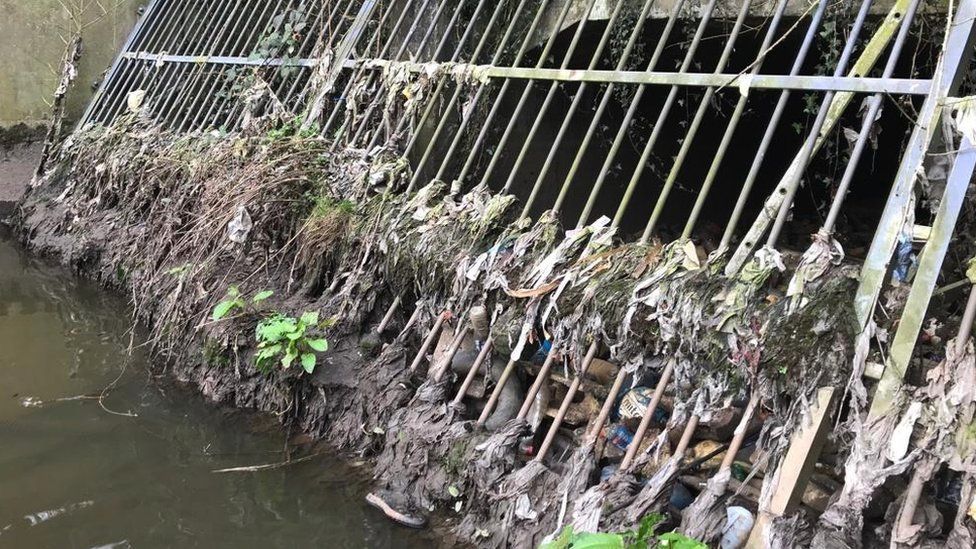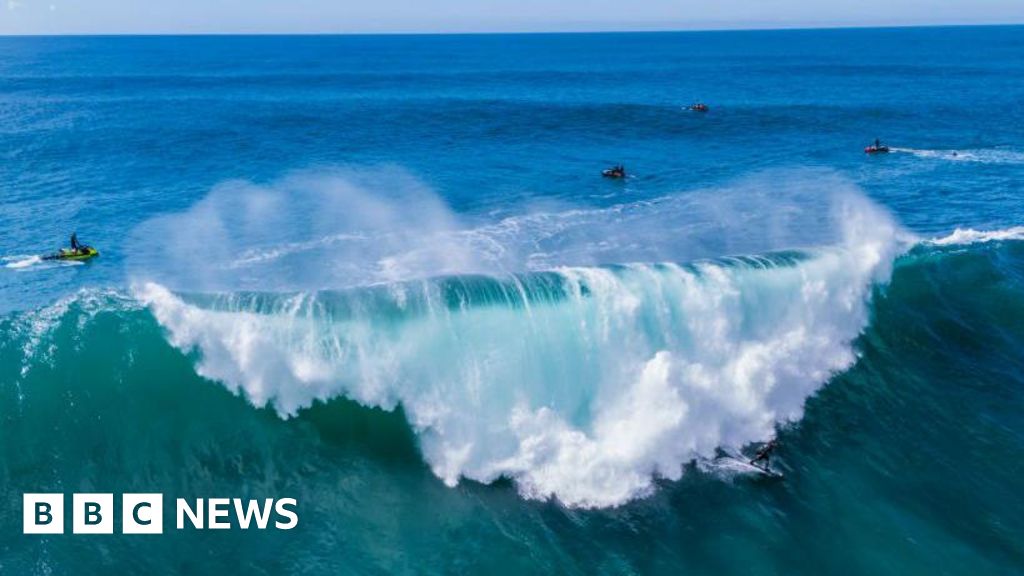ARTICLE AD BOX
 Image source, J Woodward
Image source, J Woodward
Campaigners say sewage overflows are discharging much too often
By Victoria Gill & Esme Stallard
BBC News climate and science team
Water companies released raw sewage into rivers and seas in England for more than 1.75 million hours last year.
The figures - an average of 824 spills per day - are down a third on the previous year, but the Environment Agency attributed the fall to dry weather, not water company action.
Sewage is released if there is too much demand on treatment works in rainy periods. It is a legitimate process.
But experts say it is happening too often and poses a danger to health.
Untreated effluent, including human waste, wet wipes and sanitary products are contained within these releases, posing a serious risk to the local wildlife, swimmers and others who use UK waterways.
"This degrades precious ecosystems and poses a danger to public health," said Prof Jamie Woodward, geography professor at the University of Manchester.
"Each discharge is a toxic cocktail of many pollutants, including microplastics and pathogens."
The latest data, revealed by the Environment Agency on Friday, is taken from monitoring stations installed at combined sewer overflows or CSOs. CSOs were developed as overflow valves to reduce the risk of sewage backing up during heavy rainfall when sewer pipes become overloaded, leading to flooding.
The valves release a mixture of raw sewage from homes and businesses, and rainwater run-off.
'Colossal amount of work'
Whilst the data shows a 34% reduction in the duration of spills since 2021, John Leyland, environment agency executive director said last year's decrease was "largely down to dry weather, not water company action".
"We want to see quicker progress from water companies on reducing spills and acting on monitoring data," he added.
According to the data, the company that released sewage most often in 2022 was United Utilities, which covers the North West of England. It spilled sewage nearly half a million times.
Water UK, which represents the water industry, accepted that there was "a colossal amount of work still to do" to reduce sewage spills.
The government has vowed to crack down on sewage spills. It requires the water companies invest an estimated £56bn over 25 years on improving their infrastructure, as well as fitting all storm overflows in the network with EDM monitors by the end of this year.
The River Wharfe is the first river in the UK to be given bathing water status
In the town of Ilkley, in West Yorkshire, local campaigners lobbied to have a stretch of their river designated as bathing water, meaning the Environment Agency has to test and monitor the quality of the water.
Ilkley Clean River campaigner Di Loury told BBC News that when members of the public visit Ilkley, "because it's designated as bathing water, they think the water is clean".
"But testing is one thing, cleaning up the river is another. We really should be putting the quality of the river before the profits of water companies."
Many campaigners want to know how water companies can justify profits, while they continue to pollute UK waterways.
Nicola Shaw, who took on the role of chief executive of Yorkshire Water 10 months ago, told BBC News that her company had not paid dividends to shareholders for five years: "And I actually think that's a worry," she said.
Ms Shaw pointed to the Storm Overflows Reduction Plan that the government published last year, which said water companies should invest more than £50 billion over the next 25 year in improving their environmental performance.
"We need shareholders to want to put money in to support the investment that needs to happen," she added.
"I don't think any water company can claim that their activities don't do harm to the environment. But what we're trying to do is to do less [harm] and the projects we have in place are to help that."
Related Internet Links
The BBC is not responsible for the content of external sites.

 2 years ago
63
2 years ago
63








 English (US) ·
English (US) ·